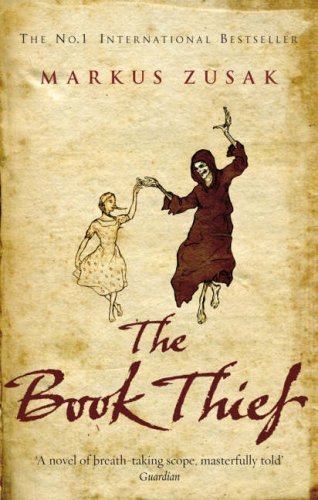 | Author: Jodi Picoult
Publication date: 2009
Publisher: Hodder Paperbacks
|
* You don't love someone because they're perfect, you love them in spite of the fact that they're not.*
Sara Fitzgerald's daughter Kate is just two years old when she is diagnosed with a rare form of leukaemia. Reeling with the helpless shock of it, Sara knows she will do anything -- whatever it takes - to save her child. Then the tests results come back time and again to show that no one in their family is a match for Kate. If they are to find a donor for the crucial bone marrow transplant she needs, there is only one option: creating another baby, specifically designed to save her sister. For Sara, it seems the ideal solution. Not only does Kate live, but she gets a beautiful new daughter, Anna, too. Until the moment Anna hands Sara the papers that will rock her whole world. Because, aged thirteen, Anna has decided that she doesn't want to help Kate live any more. She is suing her parents for the rights to her own body.
* If you have a sister and she dies, do you stop saying you have one? Or are you always a sister, even when the other half of the equation is gone? *
My sister’s keeper had been in my bookshelf for a while before I decided to read it. I was not convinced that I would like it – or rather, I was quite convinced that I would not like it – probably because of the plot. Anna is thirteen years old and her sister, Kate, suffers from a rare form of leukaemia. From the moment she was conceived, she was destined to help Kate survive. But Anna has had enough and decides to sue her parents for the right of her own body, although she knows that this decision will change their life forever.
When I read the summary, I thought Jodi Picoult’s novel was going to be one of these heart-rending stories where the author tries to make you cry from the beginning to the end; that it would be centred on Kate’s illness only to the detriment of the family and the characters; that the end would be predictable and contain no suspense. Luckily, I decided to start it anyway and I must say I was extremely surprise by how much I enjoyed it. The book was completely different from what I had imagined.
Of course, in such a story, illness has got a central part. However, I liked the was the author dealt with it because we could feel that she knew a lot about the topic although we did not have to read pages and pages of medical explanations. A few specific terms were used, but it was more to lead us into the setting than to really give information about leukaemia. So it is present along the whole story, but in the background.
We focus on Anna’s family, her own personality as well as her parents’, Kate’s and her brother’s and the relationships between these very realistic characters. Each short chapter is told by a different person, which enables us to have a different viewpoint on the events. It is an interesting narrative choice because it stops us from being on Anna’s side or against her. As the story unfolds and we share each of the characters’ experiences, we understand that such a situation is not as easy as it may seem: each person has got their reasons and sometimes there is perhaps no right or wrong.
The narrators are Anna, her parents and her brother Jesse, but we also have several chapters told by Campbell Alexander, Anna’s lawyer, and Julia Romano, the guardian ad litem appointed by the judge who has to decide what it better for the girl. Although I found it strange at the beginning, I then enjoyed having parts of the story told by characters that are not part of the family. I felt it brought reality to the story and diversion. In a way, it reminds us that no matter how hard the situation of a family is, other people around them also go on with their lives. One of the details that caught my attention was that Kate is not the narrator – except in one single chapter – despite the fact that she is the main actor in the story. I was a little disappointed at first, but after finishing it, I think it was a rather clever option.
As I said before, I appreciated the fact that the story was not tragic all the time. With such a theme, it was of course not going to be cheerful and merry, but several scenes are funny and will make us laugh. The timeline is not linear, as we have several flashbacks, which help us understand the character’s present actions.
Jodi Picoult also handles a theme which acquires more and more importance in our current life: genetic engineering. It is something subject to debate and controversy in the medical and political world nowadays and in is interesting to see how, in the story, it is also difficult to decide if it is right or wrong, good or bad. Although it does not occupy a central place in the story, several allusions are made to this matter.
The ending – which is probably what most readers will want to know before they start reading the novel – is not a happy one. Realistically, it cannot be a happy-ending. However, you will probably be taken aback by several twists and turns in the last pages, where the tension builds up until the last dramatic event occurs. I do not want to give away what happens, as it would spoil your reading, but this ending troubled me deeply. I still cannot decide if I like it or not but it clearly made me want to reread the novel with the new pieces of information I had.
My sister’s keeper is an amazing novel and I was not able to put it down until I had read it all. The writing style is nice and draws us into the story, mixing different viewpoints, present and flashbacks and tragic events with comic moments. It is a perfectly balanced story and my best read in the year so far. Let us hope the cinematographic adaptation will live up to the book’s success!
When I read the summary, I thought Jodi Picoult’s novel was going to be one of these heart-rending stories where the author tries to make you cry from the beginning to the end; that it would be centred on Kate’s illness only to the detriment of the family and the characters; that the end would be predictable and contain no suspense. Luckily, I decided to start it anyway and I must say I was extremely surprise by how much I enjoyed it. The book was completely different from what I had imagined.
Of course, in such a story, illness has got a central part. However, I liked the was the author dealt with it because we could feel that she knew a lot about the topic although we did not have to read pages and pages of medical explanations. A few specific terms were used, but it was more to lead us into the setting than to really give information about leukaemia. So it is present along the whole story, but in the background.
We focus on Anna’s family, her own personality as well as her parents’, Kate’s and her brother’s and the relationships between these very realistic characters. Each short chapter is told by a different person, which enables us to have a different viewpoint on the events. It is an interesting narrative choice because it stops us from being on Anna’s side or against her. As the story unfolds and we share each of the characters’ experiences, we understand that such a situation is not as easy as it may seem: each person has got their reasons and sometimes there is perhaps no right or wrong.
The narrators are Anna, her parents and her brother Jesse, but we also have several chapters told by Campbell Alexander, Anna’s lawyer, and Julia Romano, the guardian ad litem appointed by the judge who has to decide what it better for the girl. Although I found it strange at the beginning, I then enjoyed having parts of the story told by characters that are not part of the family. I felt it brought reality to the story and diversion. In a way, it reminds us that no matter how hard the situation of a family is, other people around them also go on with their lives. One of the details that caught my attention was that Kate is not the narrator – except in one single chapter – despite the fact that she is the main actor in the story. I was a little disappointed at first, but after finishing it, I think it was a rather clever option.
As I said before, I appreciated the fact that the story was not tragic all the time. With such a theme, it was of course not going to be cheerful and merry, but several scenes are funny and will make us laugh. The timeline is not linear, as we have several flashbacks, which help us understand the character’s present actions.
Jodi Picoult also handles a theme which acquires more and more importance in our current life: genetic engineering. It is something subject to debate and controversy in the medical and political world nowadays and in is interesting to see how, in the story, it is also difficult to decide if it is right or wrong, good or bad. Although it does not occupy a central place in the story, several allusions are made to this matter.
The ending – which is probably what most readers will want to know before they start reading the novel – is not a happy one. Realistically, it cannot be a happy-ending. However, you will probably be taken aback by several twists and turns in the last pages, where the tension builds up until the last dramatic event occurs. I do not want to give away what happens, as it would spoil your reading, but this ending troubled me deeply. I still cannot decide if I like it or not but it clearly made me want to reread the novel with the new pieces of information I had.
My sister’s keeper is an amazing novel and I was not able to put it down until I had read it all. The writing style is nice and draws us into the story, mixing different viewpoints, present and flashbacks and tragic events with comic moments. It is a perfectly balanced story and my best read in the year so far. Let us hope the cinematographic adaptation will live up to the book’s success!



















